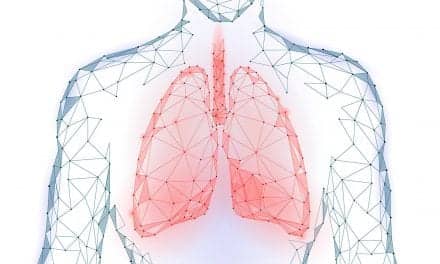Health care workers can most directly affect the quality of life (QOL) of patients with advanced stage lung cancer by helping manage symptoms such as pain, lack of energy, shortness of breath, coughing, difficulty sleeping, and dry mouth, according to a study published in the journal Oncology Nursing Forum.
Understanding symptoms, particularly symptoms distress—or the degree to which a symptom bothers a person, is crucial to improved patient care. According to the study, intervention at the time of diagnosis is important because patients with stage IIIb or IV lung cancer may approach the end of life quickly.
For the study, the researchers interviewed 80 patients with either stage IIIb or IV lung cancer who were newly diagnosed or had recurrent lung cancer. The study measured symptoms frequency, severity, and distress; functional status; anxiety and depression. Within 5 months of diagnosis, 40 patients had died. The strongest determinant of QOL was symptom distress, followed by symptoms severity, symptom frequency and depression.
The researchers advise health care workers to develop a thorough symptom assessment and to intervene quickly for patients with advanced lung cancer.
Source: University of Louisville









